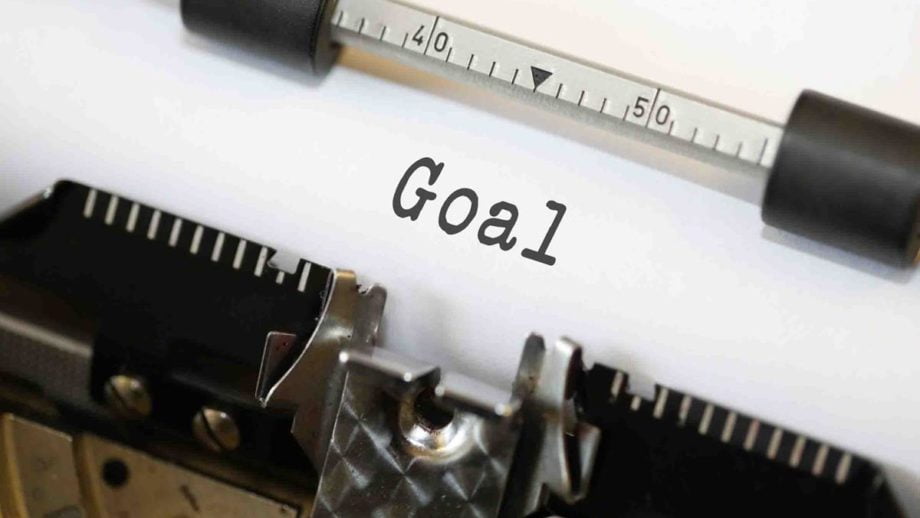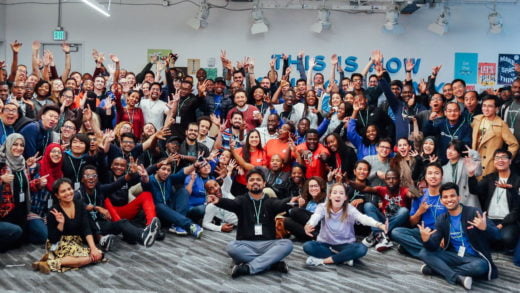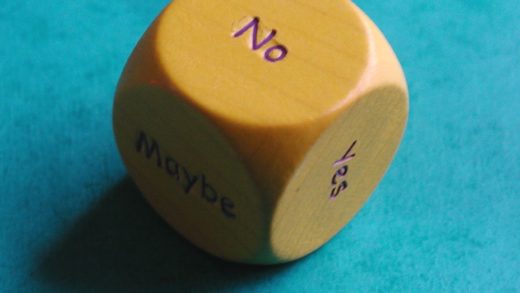Whenever we start thinking of making fresh starts, we tend to prepare a list of short-term goals that we want to achieve. And most of us (9 out of 10 people) end up not fulfilling our goals/resolutions. In this post, we will talk about simple tips that help you to stick to your goals.

1. Use systems instead of goals
This great tip was given by Scott Adams, the creator of the famous cartoon Dilbert. No, he did not give it to me personally. But I was reading his book in which he gives some great advice about failing your way to win big in the long run. Quoting Scott, “Goals are for losers,” and he explains it wonderfully in the book as well.
The best example herein is that the first new year’s resolution that most people will think of will be of going to the gym or losing weight. And the resolution is essentially a goal, we set a number, 5 kilograms in the first month, or something similar.
The problem with this approach is that you are conditioning your mind to do something you do not wish to do. This will require willpower in the long run. The feeling will wear on you that you might fail, or you have to keep trying until you achieve the goal.
This approach makes the goal a distant dream and keeps wearing you out over time. Hence you are more likely not to succeed.
Even if you succeed, you have a good feeling about it. But you decide not to think about re-doing the same goal since it took you a long time to achieve it the first time.
The other approach that helps to stick to your goals is to form a system.
You decide that you will exercise 15 minutes every day from today onwards, and you keep doing that.
All you are doing is creating a system, a habit. This sounds monotonous, routines can sound so, but in the long run, they are better than a reach the goal and be done with it situation.
You do not set reasonable expectations, and there are no deadlines. All you do is keep crawling towards getting into the habit of repeating it every day and making it a part of your daily routine.
Similarly, you could set up another system of eating healthy food.
2. Do not be hard on yourself if you fail once
This tip came out of a personal experience I had and a few readings off the internet. Usually, whenever we fail at doing something for the first time, we decide to do it with some extra efforts the next time.
If I planned to do 10 push-ups every day, and I skipped them on a day, I will try and compensate for them by doing 20 the next day. This should not be the approach to systems. You should not put in the extra efforts and stick to 10 every day.
Failing on a few occasions is okay. Nobody gets into the schedule of doing everything every day. Just make sure that you keep following your system and do the 10 push-ups the next day again, not 20.
This can be applied to a wide variety of fields. And doing 10 push-ups every day is also like a goal for every day. Doing physical exercise daily or eating healthy food would be a system.
By following this tip, you simply do not exhaust yourself of the energy and motivation to follow the system and overall. The outcome is a better mindset, helping you think in terms of consistent systems.
You have to be able to feel good about your efforts. Do not make it a punishment for your self.
3. Keep track of your progress
Analytics is an essential metric for consistency. Once you have the data, you can analyze what you are doing correctly and what is falling short. It can happen only if you keep track of what you have accomplished every day. There is a huge reason why analytics plays a huge role in the technology industry.
Since you can track everything, you can analyze what is going in the right direction and what is not. It also helps in creating better execution plans and strategically eliminating risks.
You get a rough idea of how much time you are dedicating to a system and how much you are gaining out of it, the expenses, the outcomes, and possible ways to improve your efficiency.
Summing it up
I personally was not in favor of having a designated schedule of what to do at what time during the day. It felt like too much planning. But I thought of trying it since the points mentioned seemed valid.
Setting a goal brought in some boredom along with it, and ultimately I had to try something different.
I started with a system of reading a book during lunchtime at my office. This time was some free time that I could spare for this activity. I did not target finishing “X” number of books. The plan all along was to create a system. I finished a book using this system without having to re-think about if it were something that I was not used to. And that was sufficient proof that systems could be helpful.
I modify my systems to be a bit flexible. I intend to read something. It could be anything, a book, a blog, or something interesting. If on a day, I could not read anything, I read during lunch the next day. I do not try to compensate for the lost day by reading more at some other point of the day.
I also started keeping track of the knowledge I was gaining and writing things out like this post.
Similarly, I am trying to get in a few other systems as well.
I hope these 3 tips help you in succeeding in the systems you create, ultimately helping you to stick to your goals.
I am curious as to which system you are going to try out? Let me know in the comments section!
Who knows, you might find someone who is going to follow a similar system.
And we might get the added benefit of getting to learn a few tips or even finding someone who is following the same path!



















